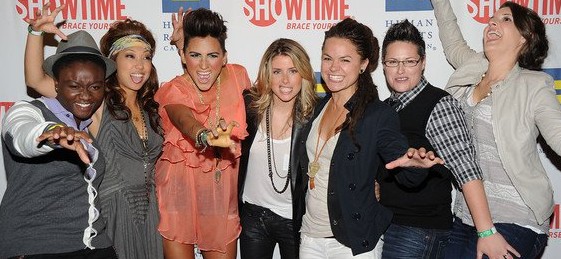

Because this is a lesbian show, we’re pretty sure that won’t last, especially once she curiously/creepily watches through the fence as her neighbor has sex with another woman in the pool. Very domestic! Very normcore! We’re guided through the episode through Jenny’s (Mia Kirschner) eyes - the newbie in West Hollywood, an aspiring writer from the Midwest eager to cohabitate with her hunky, athletic boyfriend, Tim. Their problems aren’t about being gay, but rather, about conceiving a baby. Prior to the first few minutes of this episode, happy, partnered, home-owning lesbians (Jennifer Beals’s Bette and Laurel Holloway’s Tina) had never been depicted onscreen in this way - as the protagonists. In my humble opinion, a better pilot has never existed.

Still, the show was impactful enough to be worthy of countless fan blogs, podcasts, a never-ending stream of references, and a 2019 reboot, The L Word: Generation Q, from Showtime.įor L Word newbies eager to stream the series highlights, or avid fans who just don’t have the time to commit to that whole weird Jenny carnival sequence, we’ve narrowed down the most essential episodes of the groundbreaking queer show. Diversity is minimal (and cultural representation oddly inaccurate) and the entire sixth season, well, for the sake of this list, just doesn’t exist. This, and so many lines, symbols, and events from the show became lesbian canon, thanks to the way The L Word brought queer womanhood - even if it’s explicitly in a hyperprivileged bubble - to the screen.

Find me a woman-loving woman who hasn’t drawn some rendition of this herself. Many of these envy-worthy lesbians are connected by the Chart, a whiteboard (turned website in later seasons) drawing lines between hookups of queer women around the globe, oddly personifying the interconnectedness of, well, real queer women around the world. As in, so many women and queer people watching really, really wanted the glamorous, hyperdramatized lives of these somewhat (okay, very) flawed but ambitious, attractive, and proudly out (for the most part) women.

When the series debuted in January 2004, it was the first of its kind to portray lesbian life in an aspirational light.


 0 kommentar(er)
0 kommentar(er)
